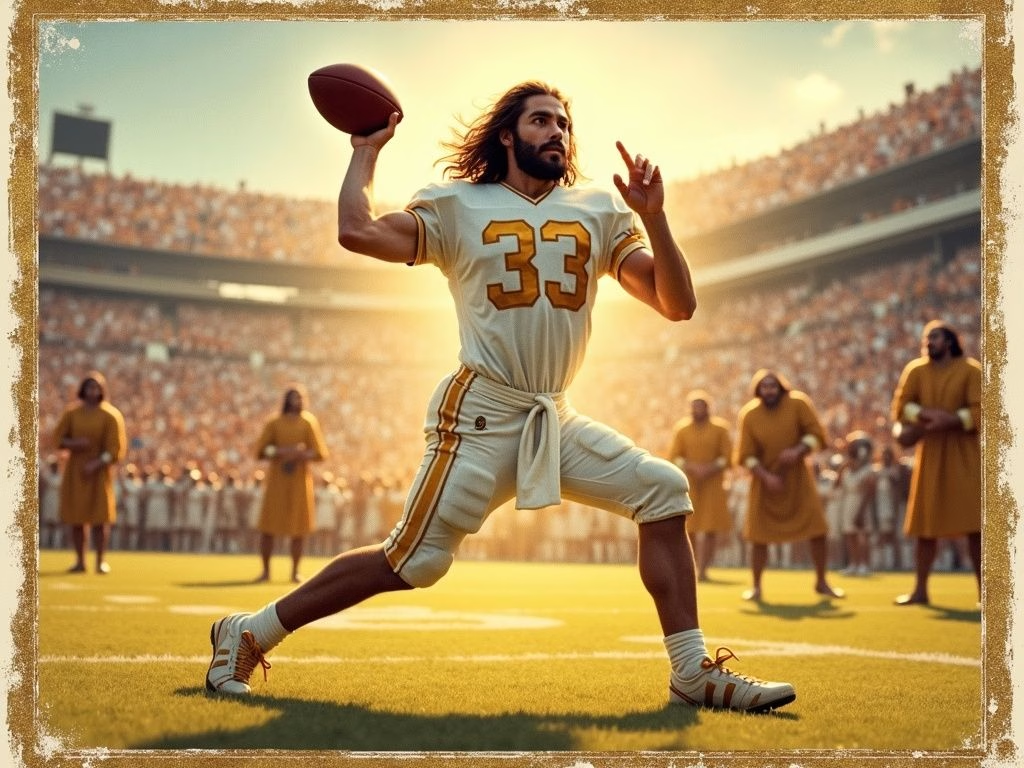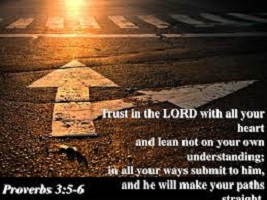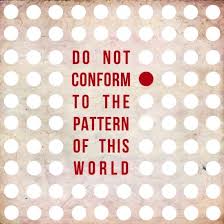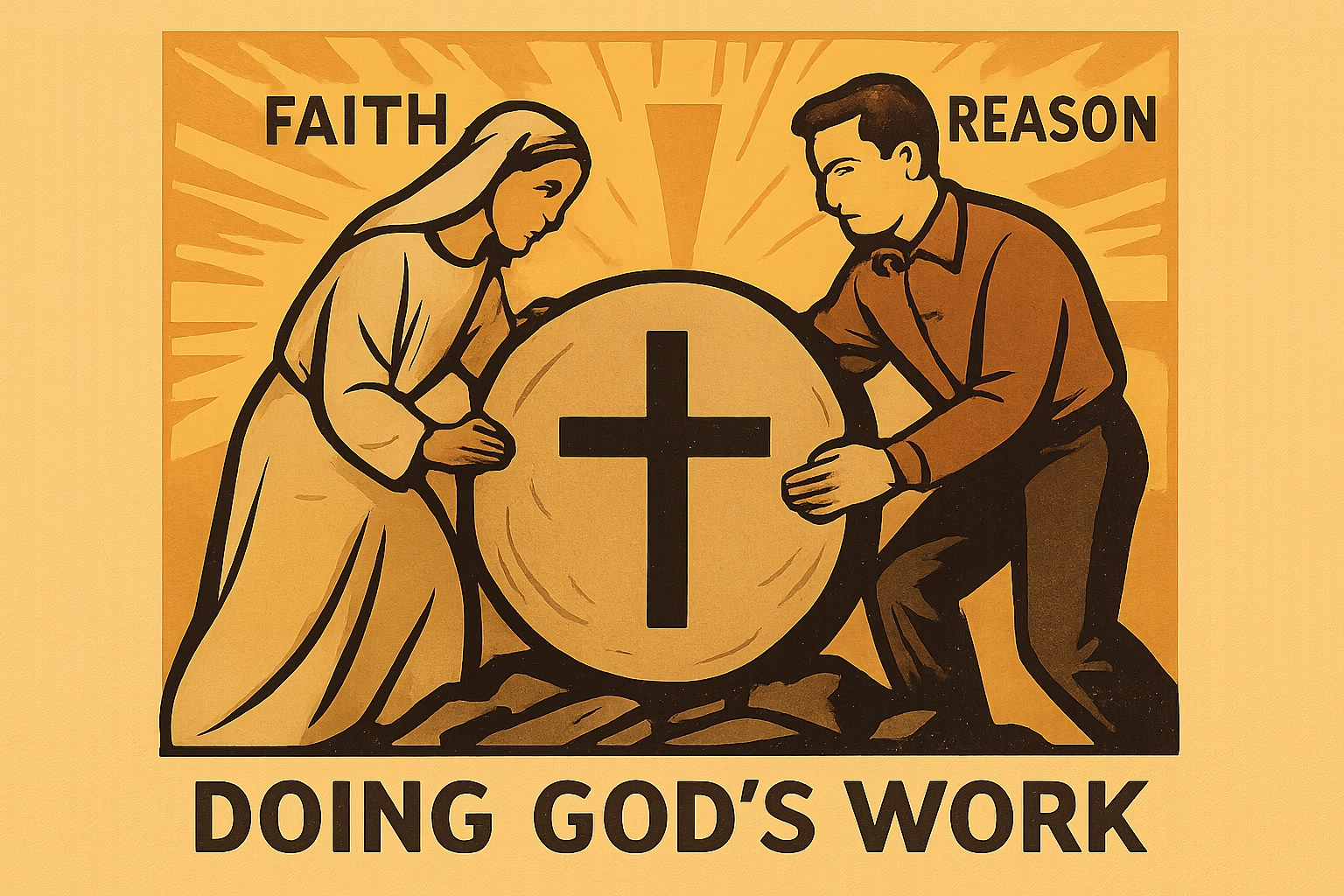Because of the grace that God gave me, I can say to each one of you: don’t think of yourself more highly than you ought to think. Instead, be reasonable since God has measured out a portion of faith to each one of you. Romans 12:3 (CEB)
Back in Part 1, we talked about how the best way of finding our calling is to trust in the Lord and not to lean on our own understanding. But why is that significant?
It is perfectly reasonable to expect that the One who prepared the path for us knows where it leads. Sometimes, that’s not where we thought we were going. A lot of times, actually. So, if the end of the path we’re preparing for ourselves isn’t in the same place as the end of the path that God is preparing for us, then all of our careful planning is just a recipe for disappointment.
Have you experienced this in your own life? I know I have, in big and small ways. When I was 18, I was going to be a famous novelist. I’m 56 now, and that hasn’t happened. When I got my foot in the door with State Government, I was going to fly through the system to the upper echelon and be a major player in state policy. All it takes is one change in the Governor’s Mansion to derail that plan.
We make our plans and God shakes His head. The harder we try to simplify our lives through our own understanding, the more complicated we make things for ourselves. We can stress ourselves into physical illness trying to figure everything out when all we really need to do is…
Follow the Leader
The trouble with that is you can’t follow God if you don’t know He’s there to follow. And even if you do know, you WON’T follow God, unless you believe you can trust Him. And that trust only comes from taking your faith to the spiritual gym and giving it a workout, through study, prayer and meditation.
That’s reasonable, right? If you want your body to stay in shape, you exercise. You don’t think about exercising or plan to exercise. You don’t say to your self, “I really need to exercise.” The only way to get results is to show some discipline by getting off the couch and putting the work in.
Spiritual growth follows the same principle. Jesus has already done the work to provide us the path to eternal life. However, to experience the abundant life down here that Jesus promises us in John 10:10 we can not afford to be spiritual couch potatoes. If following Jesus is your goal, then you have to know where He’s leading. His Word will show you the way and consistent prayer will help to illuminate that Word and make it living and active for you.
I have also found that exercising spiritual discipline doesn’t just help me see God more clearly. It also helps me see myself more clearly. Have you ever read a familiar passage of scripture and thought, “That was NOT in there before!” God always gives you the right message at the right time. The catch is that for that message to bear fruit, you have to be positioned to receive it.
Semi-obligatory Sports Metaphor
Think of the Holy Spirit as a quarterback. He can throw passes all day long, but if you aren’t facing Him with your hands in the air, you’re not going to catch anything. There’s a reason they call that an incompletion.
And even if you do catch the pass, then you have to run with it. If you just stand still and say, “Thank you for that beautiful pass,” you’re going to get tackled or knocked out of bounds by life.
No, you have to turn and run toward your goal, the end zone. You may have to break a tackle or two. You will definitely have to rely on God to send His angels to throw some blocks on those whose goal it is to keep you from reaching yours. But when you finally do cross that goal line and stand firmly in the end zone, all of heaven rejoices.
Plus, God gets the glory for throwing the touchdown pass!

Spiritual Gifts
We all have different gifts. Each gift came because of the grace that God gave us. If one has the gift of prophecy, he should use that gift with the faith he has. If one has the gift of serving, he should serve. If one has the gift of teaching, he should teach. If one has the gift of encouraging others, he should encourage. If one has the gift of giving to others, he should give freely. If one has the gift of being a leader, he should try hard when he leads. If one has the gift of showing kindness to others, that person should do so with joy. Romans 12:6-8 (ICB)
The Church is often referred to as the Body of Christ. Just as every part of your physical body has a specific function, so every member of the Church has a role to play in building it up.
So, as God transforms our minds, and we lean less on our own understanding, He starts to illuminate our path by making us aware of the spiritual gifts he has given us. We are then more able to discern His will by discovering what He has wired us to do.
Sometimes a spiritual gift is a divine enablement that enhances the effectiveness of a talent or skill we already have. Sometimes it’s something totally new. Basically, whatever work God has for us to do, He gives us the tools we need to get it done. The more we stay out of His way and just go with it, the more things start to happen.
The list in the passage above is not all-inclusive, but does illustrate some of the gifts God gives His Church.
Some people receive messages from the Lord. They don’t always make sense to the one receiving them. But if they exercise faith, and not their own understanding, and deliver the message anyway, then the person or people meant to hear it will know what it means.
The same goes for serving, teaching, encouraging, giving, leading and showing mercy. The members of the Church can be somewhat effective in trying to figure out with their own understanding how to serve strategically with their gifts. But where the rubber really meets the road is when we submit to the leading of Holy Spirit, who brought us the gifts in the first place, and see where that leads us. It’s usually somewhere we didn’t plan on being around people we never would have thought of being in the midst of.
(So what does it look like when the Church is functioning in this way? Come back for Part 3: What is Good.)


